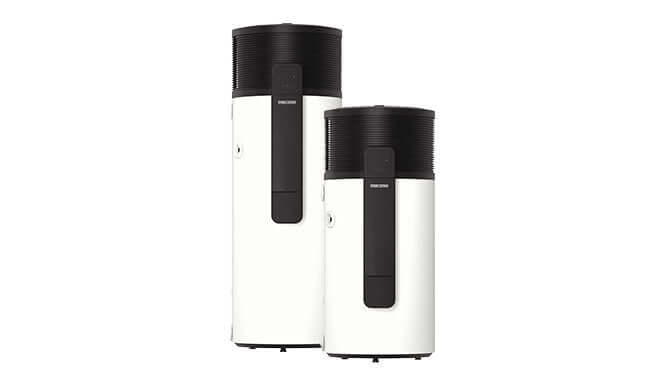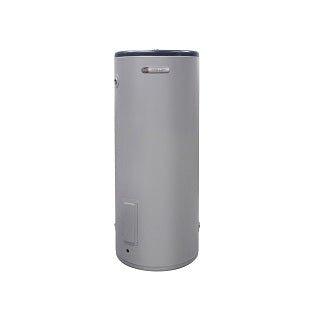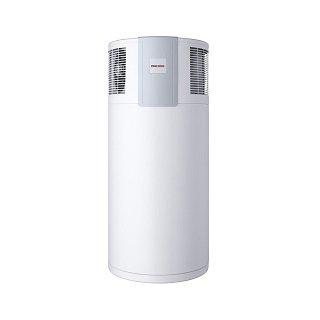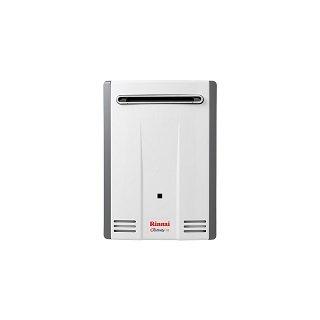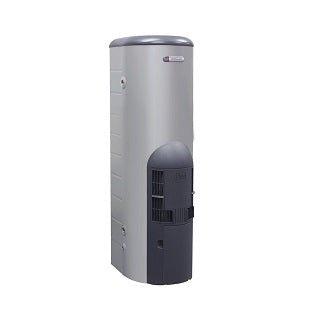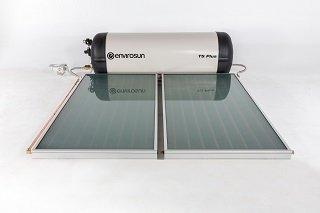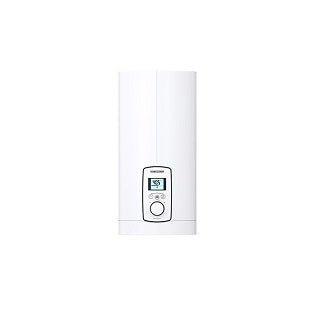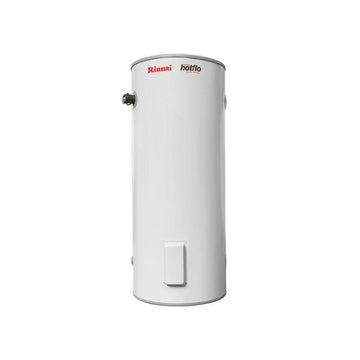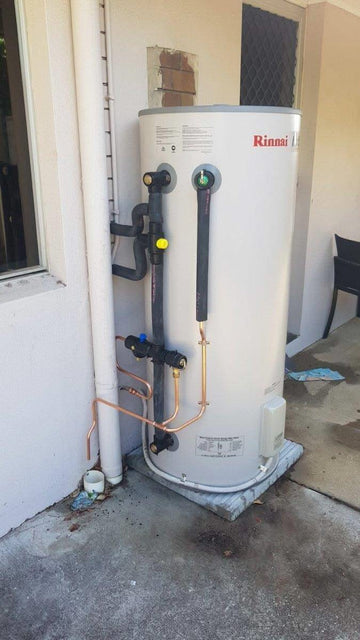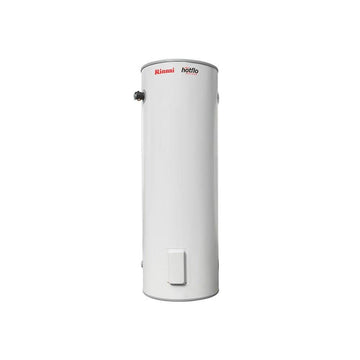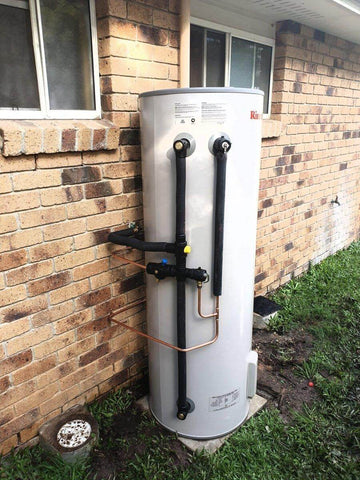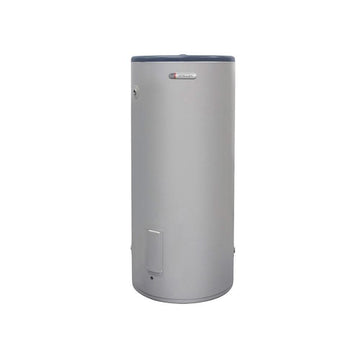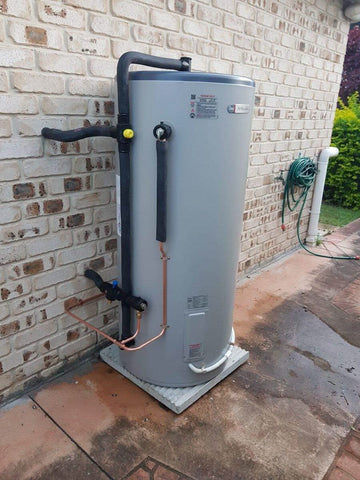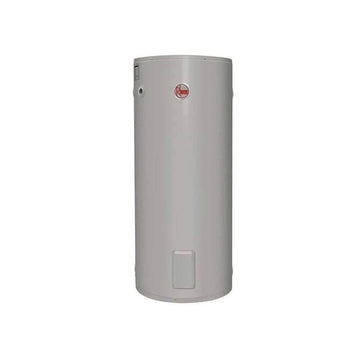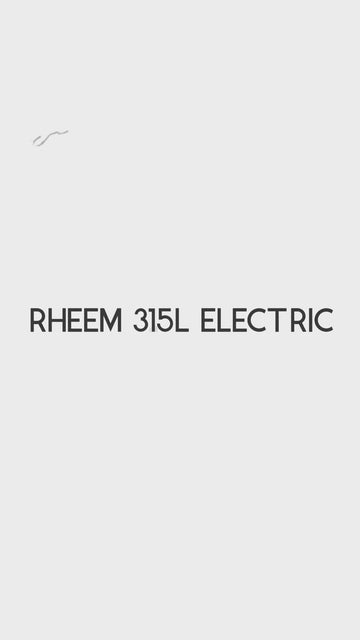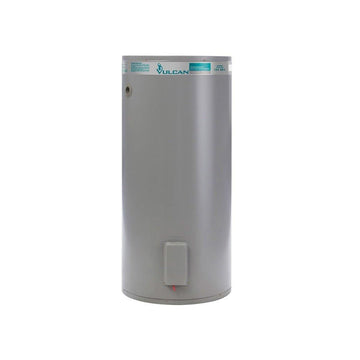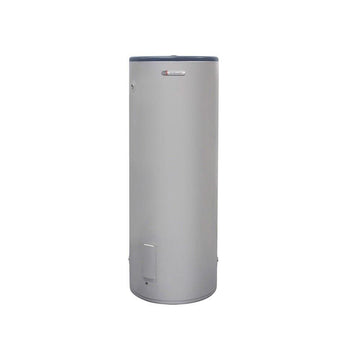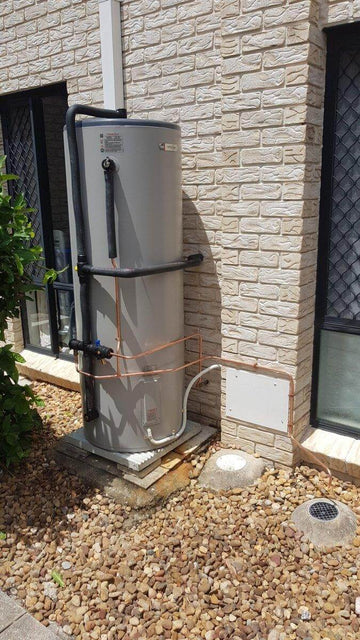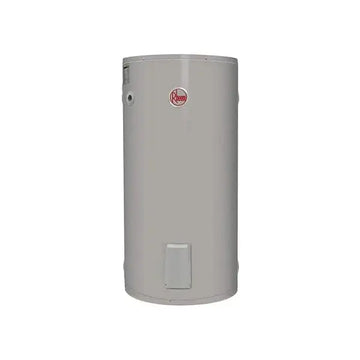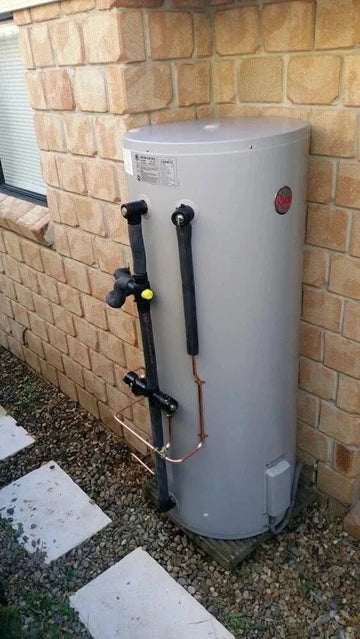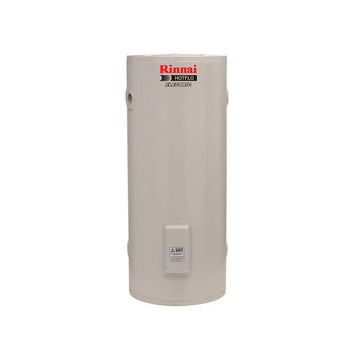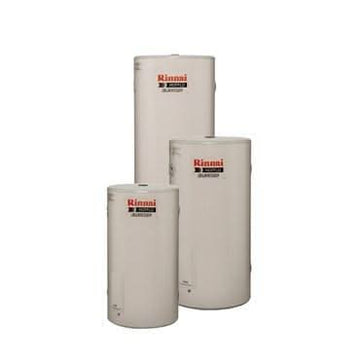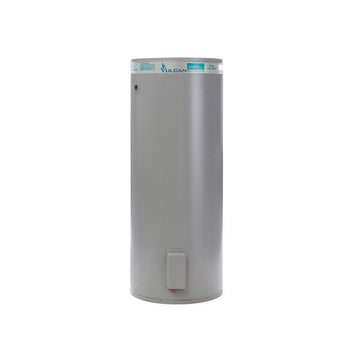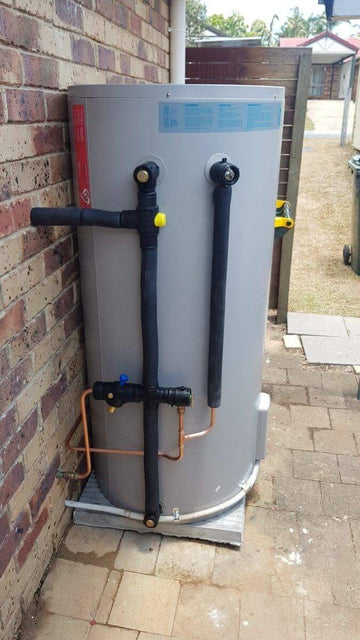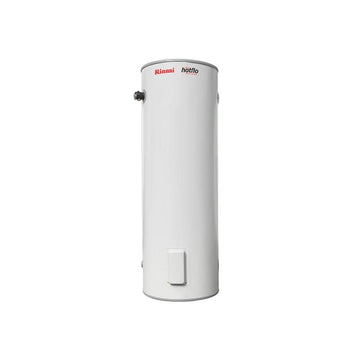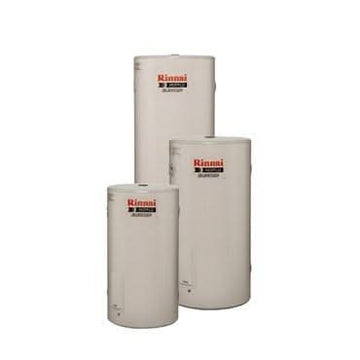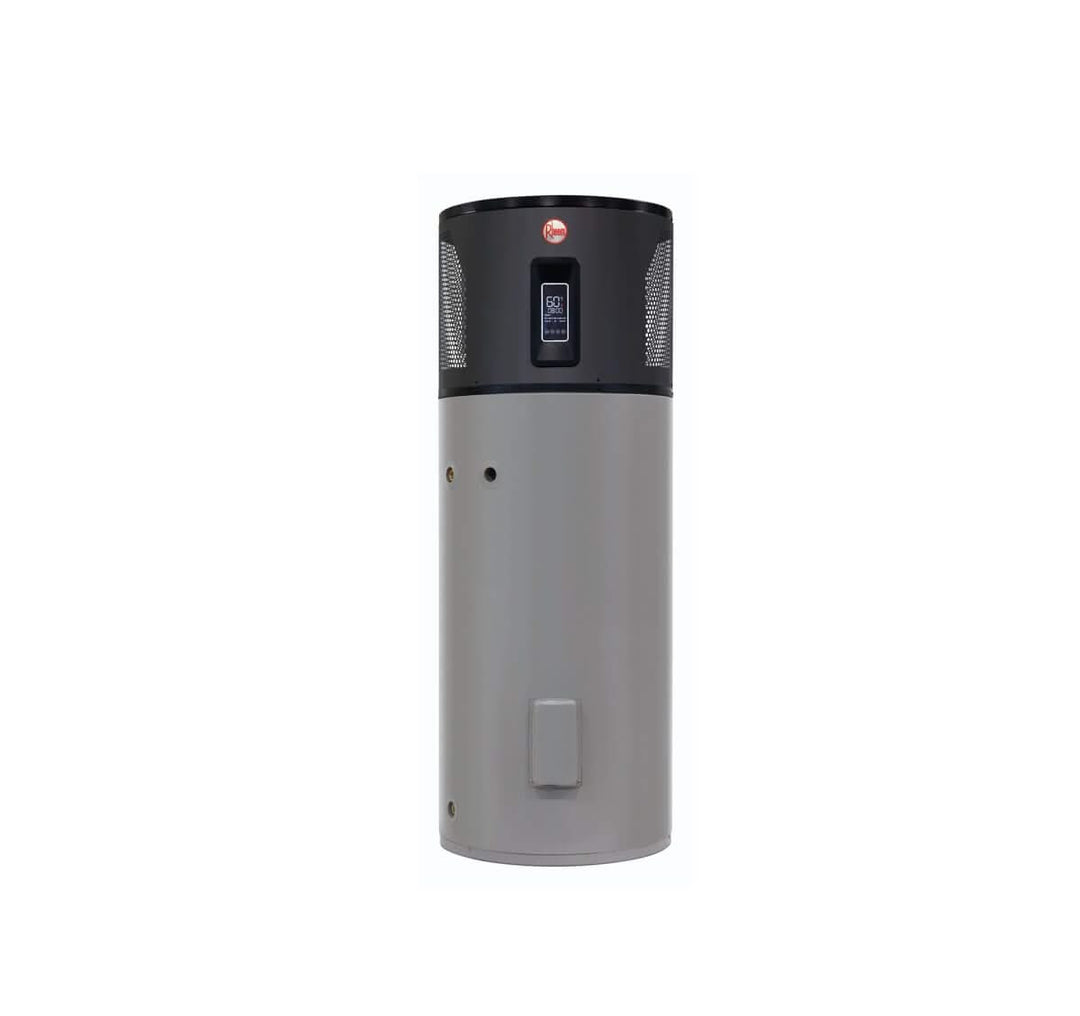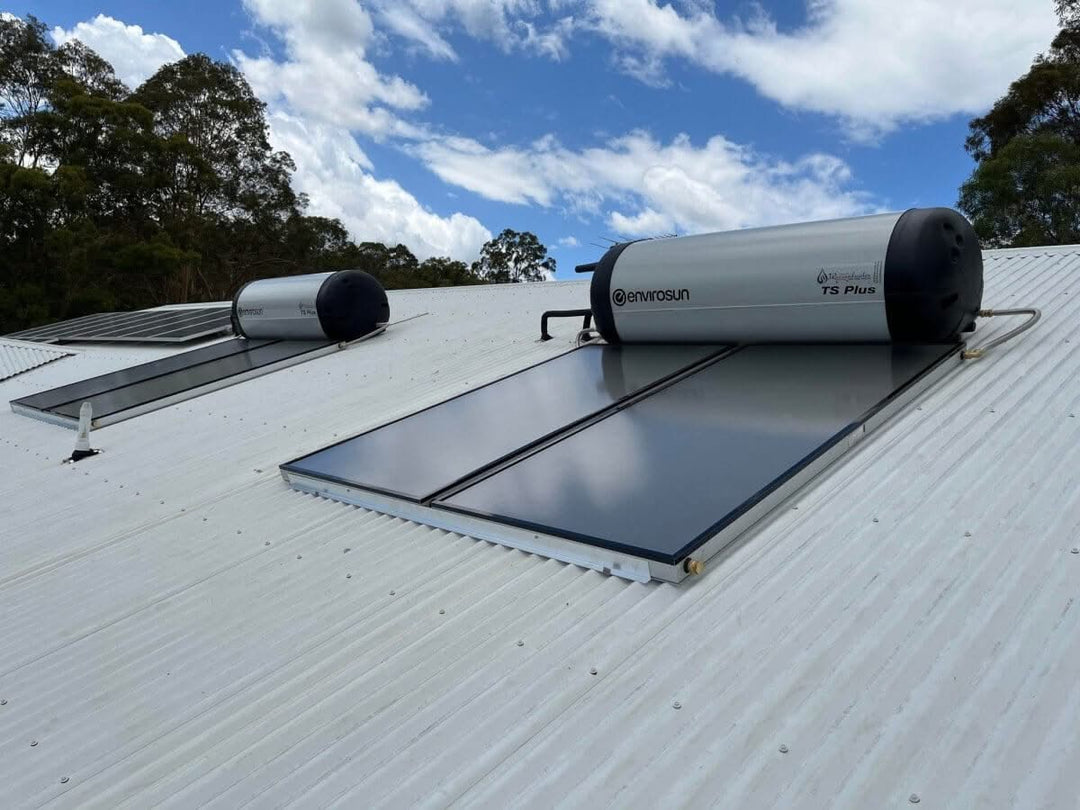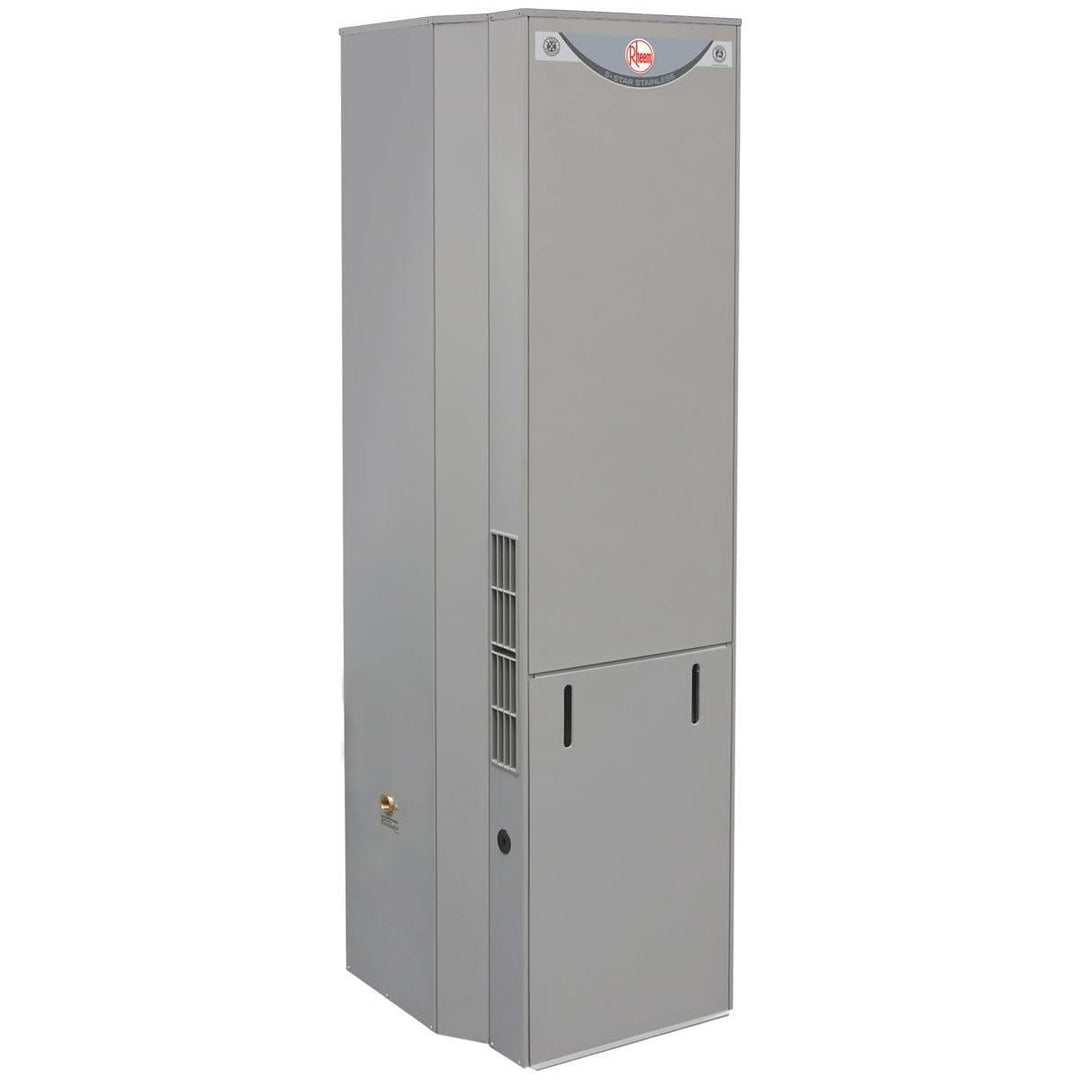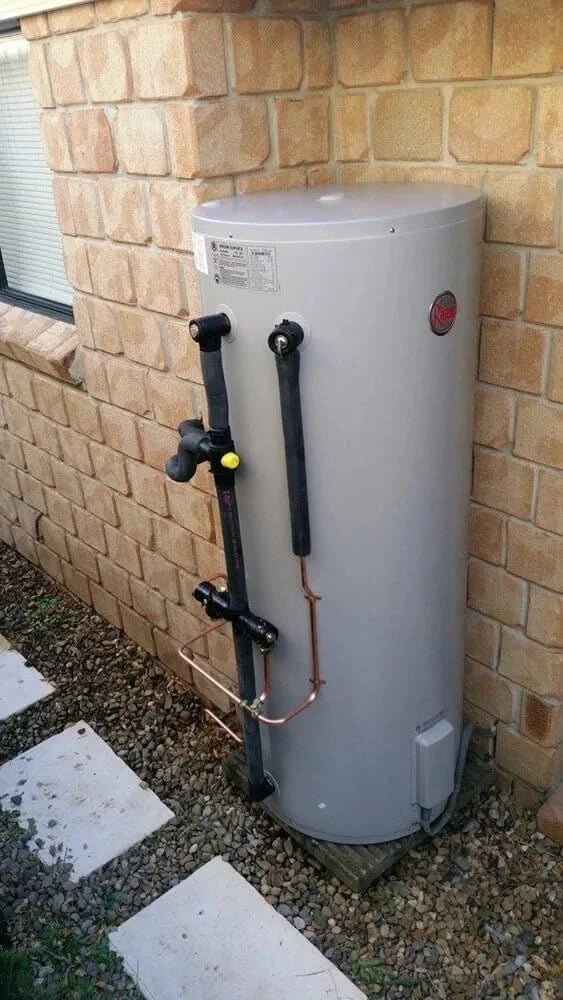Efficient Water Heating Solutions and Hot Water System Prices
Your Selection Process Guide to Water Heating Solutions
Looking for a new hot water system but not sure where to start? Our comprehensive guide to water heating solutions covers the ins and outs of electric, gas, solar, and heat pump options. We’ll help you weigh up the hot water system cost, efficiency, and maintenance to find the best fit for your home and budget. Browse the products on this page to view all of our hot water system prices.
Hot Water Solutions - Key Takeaways
- Water heating solutions vary from electric, gas, solar, to heat pump models, with factors such as hot water system cost, efficiency, eco-friendliness, and climate suitability influencing the choice.
- System sizing should be based on household demand, with considerations for household size, number of appliances, usage patterns, and climate, balancing continuous flow and storage tank options.
- Proper installation, regular maintenance, and considering upfront versus long-term expenses, alongside available government rebates, are key to the successful operation and affordability of hot water solutions.
Understanding Water Heating Solutions
Hot water solutions are diverse, ranging from electric to gas, solar, and heat pump variants, each with its own set of pros and cons. Here are some key points to consider:
- Electric systems are affordable but can be costly to run, especially in the absence of solar power.
- Gas systems are relatively cheap and eco-friendly, but not necessarily the most economical due to advancements in heat pump technology.
- Solar systems are environmentally friendly and can save you money in the long run, but they require a significant upfront investment.
- Heat pump systems are energy-efficient and can provide both heating and cooling, but they may not be suitable for colder climates.
Meanwhile, solar systems offer significant long-term savings despite their higher initial costs, and heat pump systems are lauded for their efficiency, though they can be noisy and less effective in cold locations. Continue reading to learn more or browse the products on this page to see all of our hot water system prices.
Electric Hot Water Solutions
Electric hot water systems, including electric instantaneous water heaters, function by introducing cold water into an insulated storage cylinder, where an electric element heats it up.
Although the upfront costs of these systems are relatively low, falling within the range of $1,000 to $2,000, the annual expenses associated with their operation can vary widely, influenced by factors such as the system’s efficiency and prevailing electricity rates.
Gas Hot Water Solutions
Gas hot water systems operate by heating water on demand, decreasing water wastage and offering quicker heating. The hot water heater system comprises gas storage systems components such as:
- A storage tank
- A burner assembly
- A gas control valve
- A dip tube
- A heat exchanger
- A thermostat
- A pressure relief valve
- An anode rod
- A gas burner
These components work together to heat water upon the opening of a hot water tap.
Despite their relatively high energy consumption, these systems are considered environmentally friendly due to their lower greenhouse gas emissions compared to certain electric models.
Solar Water Heating Solutions
Harnessing the sun’s thermal energy, solar hot water systems operate by utilizing photovoltaic panels to produce electricity and heat water. These systems come in various categories, including flat plate collector and evacuated tube. Despite their higher initial costs, these systems can reduce energy consumption by at least 60%, offering substantial savings in the long run.
However, their efficiency can be influenced by a myriad of factors, from collector and storage tank efficiency to system performance in different climatic conditions.
Heat Pump Hot Water Solutions
Heat pump hot water systems, also known as heat pumps, are renowned for their energy efficiency. They operate by utilizing a refrigeration cycle to extract heat from the surrounding air and transfer it to water via a heat exchanger. These systems can achieve efficiencies exceeding 300 percent, particularly when combined with solar panels.
Although their initial investment is higher than conventional systems, their average annual operating cost of approximately $200 makes this kind of hot water system cost effective in the long run.
Sizing Your Hot Water System
Choosing the right size for your hot water system is influenced by various factors including hot water system prices, household size, number of appliances using hot water, bathing frequency, and climate conditions.
Household Size and Water Usage
The size of your household directly influences the size of your hot water system. Larger families generally require a bigger system to meet their increased hot water demand. For instance, for a standard family of four, it is suggested to consider 125-160L for electric hot water systems (continuous) or 250-315L for electric hot water systems (off-peak), and approximately 135-170L for gas hot water systems.
Storage Tank vs. Continuous Flow Systems
When it comes to hot water systems, the choice between storage tank and continuous flow systems often depends on your hot water usage patterns and preferences. Storage tank systems offer a fixed amount of hot water at any given time, while continuous flow systems provide an endless supply as long as there is a continuous water flow. However, the storage systems may exhibit lower energy efficiency and are constrained by their capacity, in contrast to continuous flow systems, which are restricted by their flow rate. In this context, a continuous flow system can be an ideal choice for those who prioritize energy efficiency and an uninterrupted hot water supply.
Installation and Maintenance Considerations
Proper installation and maintenance, which includes selecting a licensed installer, retrofitting existing systems, and scheduling regular check-ups, are key to optimizing the performance and longevity of your hot water system.
Choosing a Licensed Installer
The decision to select a licensed installer is paramount as they:
- Guarantee proper installation.
- Provide service warranty.
- Conduct detailed inspections.
- Possess the know-how to prevent potential risks or damages during installation.
To verify the license of a hot water system installer, it is recommended to check whether they are registered and licensed plumbers and if they have specific accreditations such as those under the VEU program.
Retrofitting Existing Systems
Retrofitting involves modifying or upgrading an existing hot water system to boost its efficiency or functionality. While this process can be complex and potentially expensive, it can also enhance functionality, reduce maintenance expenses, and minimize environmental impact.
The retrofitting process varies depending on the type of system, but it typically includes adding a new manifold and PEX tubing to the distribution system.
Regular Maintenance
Regular maintenance is critical to maintaining peak performance and extending the longevity of your hot water system. For instance, solar hot water systems should have a Solahart Health Check every 5 years and replace the anode rod every 3-5 years to uphold efficiency.
Heat pump hot water systems, on the other hand, should be serviced annually to maintain their efficiency.
Hot Water System Cost Comparisons: Upfront and Long-Term Expenses
Both upfront hot water system prices and running hot water system costs are significant considerations when choosing a hot water system. While the initial investment may seem steep for some systems, the potential savings in running costs and energy efficiency over their lifespan could make them a worthy investment.
Initial Hot Water System Prices and Installation Costs
The installation cost for different types of hot water systems are as follows:
- Electric hot water system: usually ranges from $1,000 to $2,000, but it can go beyond $5,400 depending on the unit.
- Solar hot water system: typically range from $2,500 to $6,000 for initial installation.
- Heat pump hot water system: generally fall between $2,500 and $5,500.
While the hot water system cost might seem substantial, it’s important to consider the long-term savings they can offer.
Running Hot Water System Cost and Energy Efficiency
Running costs can vary significantly between types of hot water systems. Here are some approximate quarterly costs for different types of systems:
- Electric hot water systems (high-efficiency models): $175
- Natural gas instant systems: $400
- LPG storage systems: $840-$940
- LPG instant systems: $580
Heat pump hot water systems have operational costs falling between $200 and $300 per year. The running hot water system cost, coupled with their energy efficiency, beyond the simple, upfront hot water system prices, play a crucial role in the selection of a hot water system.
Government Rebates and Incentives
To make energy-efficient hot water system prices more affordable, government rebates and incentives are available. These financial aids can significantly offset the initial investment and installation costs of these systems.
Federal Government Rebates
The federal government offers several incentives for solar hot water systems. For instance, the Solar Homes Program in Victoria offers rebates of up to $1000 for eligible heat pump or solar hot water systems. Moreover, the Queensland Government provides a Solar Hot Water Rebate of up to $1,000 for residents. These rebates can be utilized to reduce the initial hot water system prices, thereby enhancing the affordability for homeowners.
State-Based Incentive Programs
State-based incentive programs offer a range of rebates and incentives, including renewable power incentives such as small-scale technology certificates (STCs) for solar and heat pump systems. These programs have had a positive impact on the adoption of energy-efficient hot water systems by offering unique rebate programs and incentives that motivate households to upgrade from inefficient systems.
Environmental Impact
Considering the environmental impact of hot water systems is vital. Electric hot water systems, despite their environmental benefits, have higher greenhouse gas emissions due to increased energy consumption. Conversely, gas hot water systems, although they consume more energy, generate fewer greenhouse gas emissions, making them a greener choice.
Electric vs. Gas Systems
While electric hot water systems offer the advantage of no on-site emissions, their increased energy consumption results in higher greenhouse gas emissions, especially when not utilizing off peak electricity.
On the other hand, gas hot water systems, in spite of their greater energy consumption, produce higher levels of greenhouse gas emissions, making them less environmentally sustainable.
Solar and Heat Pump Systems
Solar hot water systems and heat pump systems are more environmentally friendly options. Solar systems can reduce energy consumption by at least 60%, offering substantial savings in the long run. Heat pump systems utilize only 30% of the energy required by traditional electric systems, making them three times more efficient than conventional electric water heaters.
Both these systems significantly reduce greenhouse gas emissions and energy consumption, making them a more sustainable choice.
Summary
Choosing the right hot water system is a crucial decision that affects your comfort, energy bills, and the environment. From understanding the various types of systems and determining the right size to considering installation, maintenance, hot water system cost, and rebates, every aspect plays a significant role. While electric and gas systems have their advantages, solar and heat pump systems offer more sustainability and long-term savings. As we continue to strive for a greener planet, making informed choices about our hot water systems can be a significant step in that direction.
Frequently Asked Questions
What is the most efficient type of hot water system?
Heat pump water heaters are the most efficient type of hot water system, as they extract heat from the ambient air to heat the water, making them 2-3 times more energy efficient than storage electric hot water systems. Consider this option if you live in a mild to hot climate.
Who is eligible for government free hot water systems Victoria?
Businesses in Victoria with electric or natural gas-powered water heaters are eligible for a government-sponsored free upgrade to a heat pump-driven hot water system if the upgrade is undertaken at a business/non-residential premises.
What is the $33 hot water rebate NSW?
The $33 hot water rebate in NSW is available for homeowners and businesses with existing electric or gas water heaters who are eligible for heat pump hot water unit rebates under the ESS scheme, offering a 215L air sourced heat pump water heater for $33 when applying for an electric to heat pump hot water system upgrade.
How much does it cost to replace a hot water system Australia?
Hot water system replacement in Australia can cost anywhere from $200 to $600, depending on factors like plumber's rates, type of unit, delivery, disposal, and installation. It varies for each individual.
What are the different types of hot water systems?
The main types of hot water systems are electric, gas, solar, and heat pump systems. You can choose the one that best suits your needs.


